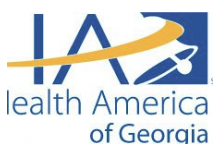MHAG is devoted to promoting mental health recovery, resiliency, and wellness. MHAG works to improve the lives of people with serious mental illness to change the mental health system that serves them. This is accomplished through a range of activities to increase the chances of more individuals experiencing better mental health. MHAG recently launched a membership program to engage communities on policy driven issues to improve access to behavioral health care services. The ... Mehr lesen
MHAG is devoted to promoting mental health recovery, resiliency, and wellness. MHAG works to improve the lives of people with serious mental illness to change the mental health system that serves them. This is accomplished through a range of activities to increase the chances of more individuals experiencing better mental health. MHAG recently launched a membership program to engage communities on policy driven issues to improve access to behavioral health care services. The organization is working to expand its volunteer program to offer opportunities to give back to communities in need of basic resources. MHAG offers training and mental health awareness education through the following programs.
Policy, Advocacy and Research Program (PAR): MHAG is a recognized leader in mental health advocacy and often acts as a resource for Georgia legislators, state organizations and communities. The PAR program offers mental health and wellness education through brochures, fact sheets, infographics, resource guides and information on how legislation and policy may improve local access to mental health services. Through PAR, MHAG provides technical assistance on grants, program development and policies/procedures that supports individuals with behavioral health challenges. MHAG promotes the development of and advocacy for mental health policies that anticipate the mental health needs of Georgians.
Kids on the Block (KOTB): Kids on the Block (KOTB) is an educational puppetry program that uses life-sized, multicultural puppets to promote mental wellness for children. The presentations are designed to help children understand their feelings and encourage communication of problems or stressors that affect them at home, school, and in other venues. KOTB serves as a non-threatening vehicle through which children can articulate issues that they might otherwise feel uncomfortable talking about. Lesson scripts promote an understanding of diversity and wellness through a curriculum that emphasizes help-seeking behaviors and coping skills. Because good mental health and wellness are major components in the prevention of substance abuse, violence, and crime, the Kids on the Block program is a vital service to these target populations.
RESPECT Institute: In partnership with Georgia Mental Health Consumer Network, the RESPECT Institute provides individuals with the skills necessary to transform their mental illness, treatment, and recovery experiences into educational and inspirational presentations. These presentations are then delivered to audiences throughout Georgia. Through these efforts, we are creating a group of individuals who educate communities and promote compassion, acceptance, and encouragement to seek help for mental illness. There are over 500 RESPECT speakers and have presented to over 100,000 listeners.
Mental Health Academy (MHA): The Mental Health Academy is a training program to educate non-mental health community members to better understand mental illnesses and addictions and provide effective response options for de-escalation. The MHA program will offer Mental Health First Aid (MHFA), Question, Persuade, and Refer (QPR) Gatekeeper Training for Suicide Prevention and Outreach Wellness Learning (OWL) seminars, curriculum of common research-based mood and anxiety disorders, to community members. MHAG works to improve mental health outcomes among the general population.
MHAG evaluate for the following outcomes 1) assist in the education and reduction of stigma of mental health and 2) increase coordination of mental health treatment and supports for community members. The goals and objectives include: (1) Increase mental health literacy for first responders, Faith-based organizations and families of veterans to support individuals with behavioral health challenges. The objective is to provide training to 3,000 community members; (2) Improve coordination and access of resources, mental health treatment and supports in communities. The objective is to develop pathways to care that is clear for community members and utilize screening tools to determine early access needs; (3) Promote mental wellness and enhance recovery for individuals with mental illnesses. The objective is to ensure that 25% of the trained population will utilize screening tools to recognize symptoms earlier and recommend services sooner than later.
Vollen Text ausblenden

